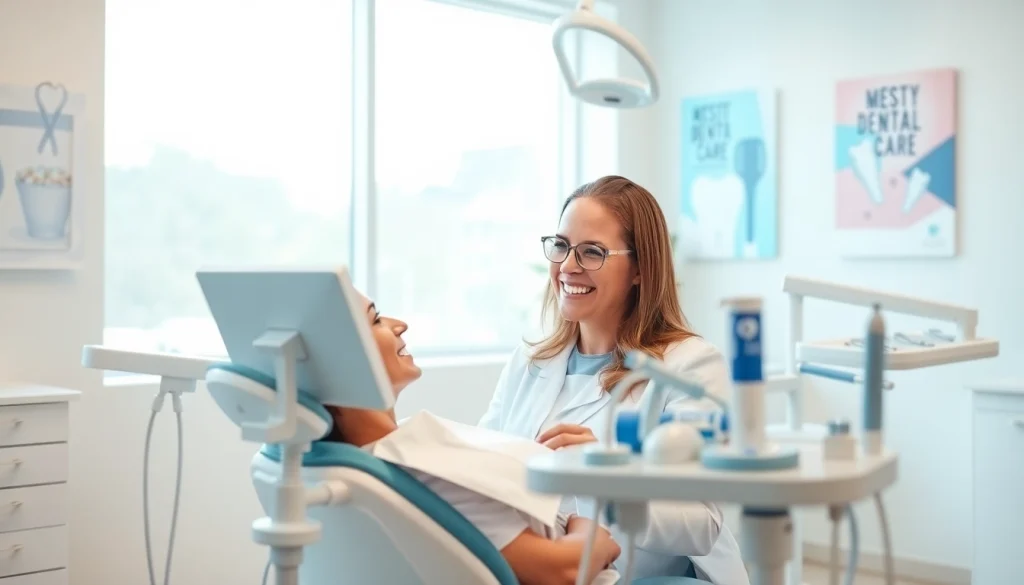What Are Dental Cleanings?
Definition and Importance of Dental Cleanings
Dental cleanings are professional oral hygiene procedures performed by a dentist or dental hygienist. During this process,
the goal is to remove bacteria, plaque, and tartar buildup from the surfaces of your teeth. This cleaning is crucial
for maintaining oral health, as it helps to prevent cavities, gum disease, and other dental problems that can arise from neglecting oral hygiene.
Regular dental cleanings are a key component of an effective preventive care routine. They help ensure that
your teeth and gums remain healthy and free from complications that could lead to more serious health issues in the future.
Frequency and Recommendations for Dental Cleanings
The American Dental Association (ADA) recommends that individuals undergo dental cleanings at least twice a year.
However, certain individuals, especially those with gum disease or a history of dental issues, may require more frequent visits.
Factors such as age, diet, medical history, and lifestyle habits (e.g., smoking) can affect how often you should get your teeth cleaned.
Regular cleanings not only help in the early detection of conditions that could develop into serious issues but also
foster better oral hygiene habits. A dental professional can evaluate your unique needs and make tailored recommendations regarding the frequency of your cleanings.
Types of Dental Cleanings Explained
There are several types of dental cleanings, each designed to cater to specific needs:
- Prophylactic Cleaning: This is the most common type, aimed at preventing cavities and gum disease in healthy patients.
- Scaling and Root Planing: This is a deep cleaning procedure for patients suffering from gum disease. It involves removing plaque and tartar above and below the gum line.
- Preventive Cleaning: This is focused on stopping oral diseases before they occur, often used for patients with a high risk of dental problems.
- Periodontal Maintenance: For those with a history of periodontal disease, these cleanings are performed more frequently to maintain healthy gums.
The Dental Cleaning Process
Initial Examination and Assessment
Every dental cleaning begins with an initial examination conducted by the dentist or hygienist. This assessment includes checking
the health of the teeth and gums, identifying areas that may need special attention, and potentially taking dental X-rays
to gain a clearer understanding of your oral health.
Steps Involved in a Routine Dental Cleaning
The cleaning process typically consists of the following steps:
- Physical Examination: The dentist examines your mouth and may use X-rays to identify any issues.
- Removing Plaque and Tartar: Using special instruments, the hygienist removes plaque and tartar buildup from the surfaces of the teeth, especially in hard-to-reach areas.
- Gritty Toothpaste Cleaning: After scaling, a gritty toothpaste is used for a deeper clean and polish, leaving your teeth feeling smooth.
- Expert Flossing: The hygienist will floss your teeth to remove any remaining debris between your teeth and below the gumline.
- Rinsing: A special rinse is often used to clear away any remaining particles and leave your mouth feeling fresh.
- Fluoride Treatment: Depending on your needs, a fluoride treatment may be applied to strengthen your teeth and protect against cavities.
Advanced Techniques in Dental Cleanings
For patients with specific needs—especially those suffering from gum disease—advanced techniques may be employed:
- Laser Cleaning: Lasers may be used to remove tartar and bacteria with minimal discomfort.
- Ultrasonic Scaling: This technique utilizes ultrasonic vibrations to break apart tartar, making it easier to remove.
Benefits of Regular Dental Cleanings
Preventing Oral Diseases and Conditions
One of the primary benefits of regular dental cleanings is the prevention of oral diseases. Removing plaque and tartar buildup
effectively prevents gingivitis (early gum disease) from progressing to more severe periodontal disease. The risk of cavities is also reduced, keeping your teeth healthier for longer.
Improving Overall Dental Health
Cleanings contribute to overall dental health by ensuring that the mouth remains free from harmful bacteria. Regular visits
can lead to early detection of issues such as tooth decay, enabling prompt treatment and management.
Enhancing Your Smile and Confidence
A clean mouth and healthy teeth contribute to a brighter smile, which can significantly boost your self-confidence. Regular
cleanings help keep teeth looking bright and healthy while removing surface stains that can dull your smile.
Common Myths About Dental Cleanings
Debunking Misconceptions
There are many misconceptions about dental cleanings that can deter people from seeking regular care. Common myths include beliefs that dental cleanings are overly painful, unnecessary if there are no visible problems, or that they can be harmful.
Scientifically, these notions are generally unfounded.
Understanding Pain and Discomfort Factors
While some individuals may experience mild discomfort during dental cleanings—especially if it has been some time since the last cleaning—modern techniques are designed to minimize pain. Dentists can offer local anesthetics or suggest adjusting the cleaning technique to enhance comfort.
Clarifying the Necessity of Dental Cleanings
Dental cleanings are a fundamental aspect of oral health care and are essential even when no issues are present. Preventive measures taken during cleanings can save time, discomfort, and expense down the line by preventing more serious dental issues.
Finding the Right Dental Clinic for Cleanings
Key Factors to Consider
When searching for the right dental clinic for your cleanings, consider factors like the dentist’s credentials, the clinic’s
cleanliness and environment, and whether they use modern technology. A welcoming atmosphere can make visits more comfortable.
Questions to Ask Your Dentist
During your first visit, don’t hesitate to ask your dentist questions, such as:
- What does the cleaning process entail?
- How often should I have my teeth cleaned?
- Can you explain the findings from my dental examination?
- Are there any specific products or techniques I should use at home to maintain my oral health?
Evaluating Patient Reviews and Testimonials
Reading patient reviews can provide valuable insights into a dental clinic’s level of service and care. Look for patterns
in reviews related to the quality of care, friendly reception staff, and the overall experience of past patients.
